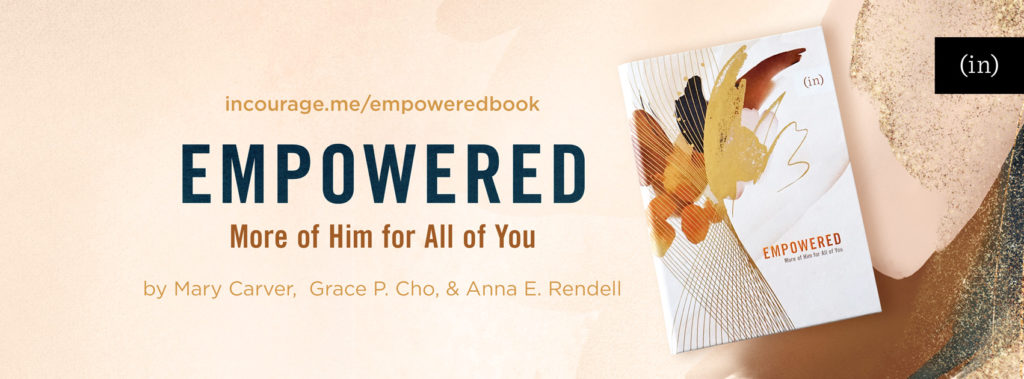I hit play and suddenly the familiar voices of characters I’ve come to love are speaking, shouting, whispering in my ears. The story rises and falls. With each turn, at every “there’s no way out” moment, my heartbeat quickens, my eyes widen, and I wonder what will come next. I’m frozen, holding my breath until they breathe a sigh of relief and make it to the other side of the cliff, until they’re safely through the unknown, until the page turns.
Chapter after chapter, my investment in the story increases. Book after book in the series, I’m drawn in deeper. When I reach the end of the very last sentence, a sigh escapes even as a smile spreads across my face.
There were twists I never saw coming, moments I anticipated that didn’t come to fruition, characters who betrayed, and many tears shed along the way. Death had something to say and loss colored the pages. But line by line and page by page, a grand story was woven together, culminating in an ending that wasn’t quite what I expected and yet was absolutely as it should be. It was right and it was good and it was beautiful.
The series found its way into my life at the very beginning of the pandemic, in the confusing unknown of days quietly spent locked down. Every evening, my roommate and I sat on the couch, coloring books and embroidery in hand, as the author read another twenty pages or so. We were surrounded by the unknown even while stuck at home, but night after night we were swept up in a story with an undercurrent of hope and joy, love and light.
This fall, after the approximately fifty-seventh time I raved about the fantastic writing and the characters that felt like friends, two real-life friends picked up the first book. Of course, I promptly started the series over, ready for a refresh and determined not to accidentally mention any spoilers. Before long, I once again sat on the edge of my seat, nervous over how they’d make it through to the next chapter.
At one particular moment, I interrupted the audiobook narrator and reminded my racing heart, “It’s going to be okay. You know how the story ends.” And then I froze, this time in wonder and relief, because while it’s true as I re-read a fictional story, the deeper truth is that Scripture offers us the very same hope, the assurance that come what may, it’s going to be okay.
Oh, it won’t be neat and tidy, predictable and tied with a Hallmark movie bow, but as Cory Asbury says, “The story isn’t over if the story isn’t good.”
What a gift for these right now days.
What a promise in the waves.
What a hope to cling to when the night is long.
We may not know what the next chapter will look like or how we’re going to make it, but we can be confident that ours is a God who does indeed bring us through the fire and the flood. There will be twists and turns along the way, but a way will most surely be made. The end has been determined: God will walk us all the way Home.
Revelation 21:3-6 says, “ ‘Look, God’s home is now among his people! He will live with them, and they will be his people. God himself will be with them. He will wipe every tear from their eyes, and there will be no more death or sorrow or crying or pain. All these things are gone forever.’ And the one sitting on the throne said, ‘Look, I am making everything new!’ And then he said to me, ‘Write this down, for what I tell you is trustworthy and true.’ And he also said, ‘It is finished! I am the Alpha and the Omega—the Beginning and the End. To all who are thirsty I will give freely from the springs of the water of life.’ ”
May we remember, here in these short December days when the night creeps closer, the words we’re quick to proclaim on a bright spring morning: Sunday is coming! He is risen indeed.
Even when the darkness is surrounding and suffocating, God hasn’t gone anywhere. Even in the seasons that feel like one long Good Friday, the story beneath the story is one of hope. Even when we cannot see a way, God will not turn away. He is trustworthy and true, and the One who is the end knows exactly how the story ends. The Word gets the final word, and it’s guaranteed to be good.
As one of the characters so perfectly says near the end of the series, when they’ve made it through the seemingly impossible, “Dawn has conquered dark since the Maker spoke the world. The night is deep, but light runs deeper.”
Our hope is secure. The promise is sure. The weary world has reason to rejoice, for the story is in good hands. Dawn is already on the way.
We’re going to be okay. We know how the story ends.
For more encouragement in the messy middle, pick up a copy of Kaitlyn’s book. Even If Not will help you shift from the suspicion that God isn’t kind or present to the truth found in Scripture: on every single page of the story, He is with us and working all things for good.








